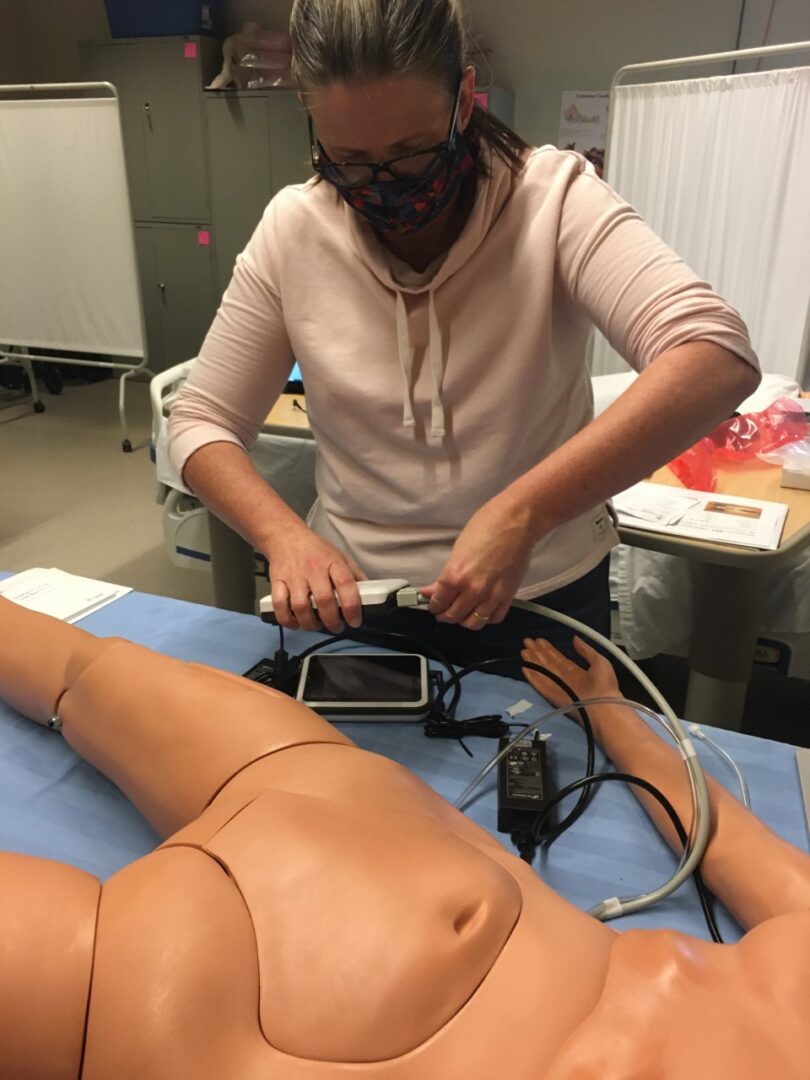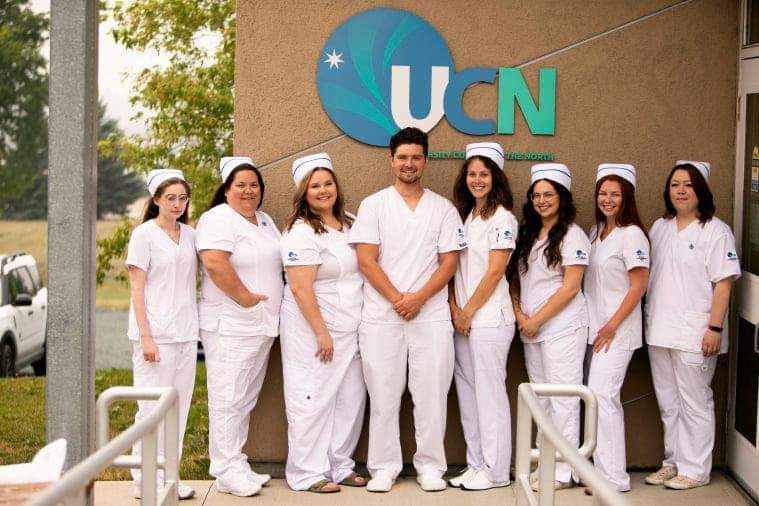A Closer Look at DPN
The UCN Diploma in Practical Nursing (DPN) program is a two-year diploma offered in Swan River, Flin Flon and Thompson. The DPN program provides students with the knowledge and skills base to work as a professional member of the health care team and to successfully assume leadership roles. Graduates of the DPN program will be able to meet or exceed the following outcomes:
- Examine the change in role from student to graduate/professional practical nurse.
- Examine professional self-regulation, the professional association, union structure and function, and implications for practice.
- Assess the role of the practical nurse as a member of a professional association.
- Evaluate current legislation, including restricted activities and supervision of restricted activities, and reflect on implications for professional practice.
- Prepare for employment as a practical nurse.
- Examine the structure and function of organizations.
- Determine the major concepts of leadership and management.
- Evaluate the components of a quality, supportive work environment and implications for a leader/manager.
- Design strategies that could be utilized to facilitate communication and encourage the development of a quality supportive work environment for an interdisciplinary health-care team.
- Determine issues in human resource management, fiscal resource management, and implications for practice.
- Critique current media and research findings regarding nursing and health-care trends and issues.
- Analyze professional practice utilizing knowledge and practicum experiences from the previous courses.
- Develop a plan for ongoing learning to promote personal and professional growth and continued competence.
- Measure the value of clinical quality improvement, risk management, nursing research, and best practice guidelines.


Admission Requirements
Before applying to be a student in the UCN DPN program, please read this document “Becoming a Licensed Practical Nurse in Canada: Requisite Skills and Abilities”. The information in this document, Becoming a Licensed Practical Nurse in Canada: Requisite Skills and Abilities, may be used by individuals to determine their ability to provide safe, competent and ethical nursing care, and meet the demands for a career as a licensed practical nurse in Canada.
Direct Entry
Grade 12 graduate with a 63% average, and
English 40S, and
Pre-Calculus Mathematics 40S, Applied Mathematics 40S or Essential Mathematics 40S, and
Chemistry 40S, Physics 40S or Biology 40S
A minimum of 60% required in each of the three 40S courses (Math, English and Science), however a higher grade is recommended as admission may be competitive.
English Proficiency Requirements
An applicant whose first/primary language is not English must provide evidence of language proficiency by submitting the required language test scores from the following College of Licensed Practical Nurses of Manitoba (CLPNM) Board-approved language proficiency test:
International English Language Testing System (IELTS)—Academic version
Writing 6.5
Speaking 7.0
Listening 7.0
Reading 6.5
Overall 7.0
Transfer from other Programs
Transfer requests from other institutions/programs will be assessed upon an individual basis.
Non-Academic Requirements upon Admission (i.e. not required to be submitted with application)
All students must meet the Non-Academic Requirements within the first month of commencement of the program. Any costs associated with the Non-Academic Requirements are the responsibility of the student.
Child Abuse Registry Check
As it can take up to 120 days to obtain this document, it is recommended that students apply for the Child Abuse Registry check upon acceptance in to the program.
Any student on the Child Abuse Registry will be dismissed from the program.
Adult Abuse Registry Check
As it can take up to 120 days to obtain this document, it is recommended that students apply for the Adult Abuse Registry check upon acceptance in to the program.
Any student on the Adult Abuse Registry will be dismissed from the program.
Criminal Record Check
Students must provide a Criminal Record Search Certificate, including Vulnerable Persons Search. As it can take up to 120 days to obtain these documents, it is recommended that students apply for the Criminal Record Search certificate and Vulnerable Persons Search upon acceptance in to the program.
A criminal conviction will not necessarily result in dismissal from the program; however, criminal offences will be reviewed by the Regional Health Authority and a determination will be made as to the availability of clinical placements for the student in question.
Immunization
As it may take a number of months to complete the immunization requirements, it is recommended that all students start their immunizations upon acceptance in to the program.
Any student with an incomplete immunization will be barred from attending clinical.
CPR Certification
Heart and Stroke CPR (BLS) certification must be completed and submitted at least two months prior to the commencement of the first clinical in Year One of the program. The certification must be recertified and remain valid until the end of August in Year Two of the program (i.e. must be valid for the entire duration of the senior practicum).
Any student without a current CPR (BLS) certification will be barred from attending clinical.
College of Licensed Practical Nurses of Manitoba (CLPNM) Student Registration
DPN students are responsible to attain and maintain a Student CLPNM Registration as outlined by the CLPNM. Students must be registered with the CLPNM within four weeks of the program start date. More information will be provided during the program orientation once classes begin.
Any associated fees are the responsibility of the student. The student is accountable to submit all documentation, as required or requested, directly to the CLPNM.
Any student without a current Student CLPNM Registration will be barred from attending clinical.
Practice Direction on Fitness to Practice
The CLPNM Board of Directors has approved a new practice direction on fitness to practice (September 2017). Fitness to practice means having the physical, mental, and psychological capacity to consistently meet the demands of the nursing position, and to care for clients safely, competently, and ethically. The new practice direction provides guidance to practical nurses on their responsibility to engage in reflective self-assessment and to ensure that they are fit to practice before they do so. Please review the practice direction here: http://www.clpnm.ca/standards-guidelines/practice-directions/
Career Paths

Forms and Links
Forms
Occurrence/Incident Report Form (Students are to complete this form as soon as possible following an incident or occurrence that has taken place during a clinical rotation, whether it is a near miss or an actual error.)
Information Related to Non-Academic Requirements Upon Admission to the DPN Program
- Child Abuse Registry Check: information regarding the check and access to the form is available at the Government of Manitoba website.
- Adult Abuse Registry Check: information regarding the check and access to the form is available at the Government of Manitoba website.
- Criminal Record Check: information regarding the check and access to the form is available at the RCMP website.
- Immunization
- College of Licensed Practical Nurse of Manitoba (CLPNM) Student Registration: information regarding the required Student Registration can be found at the CLPNM website.

